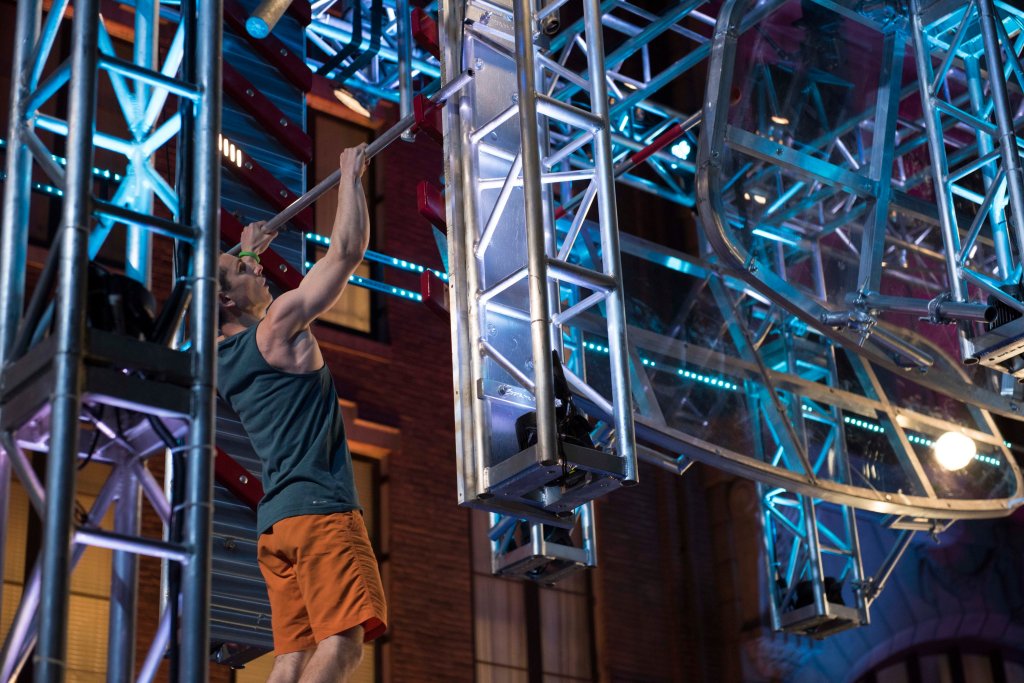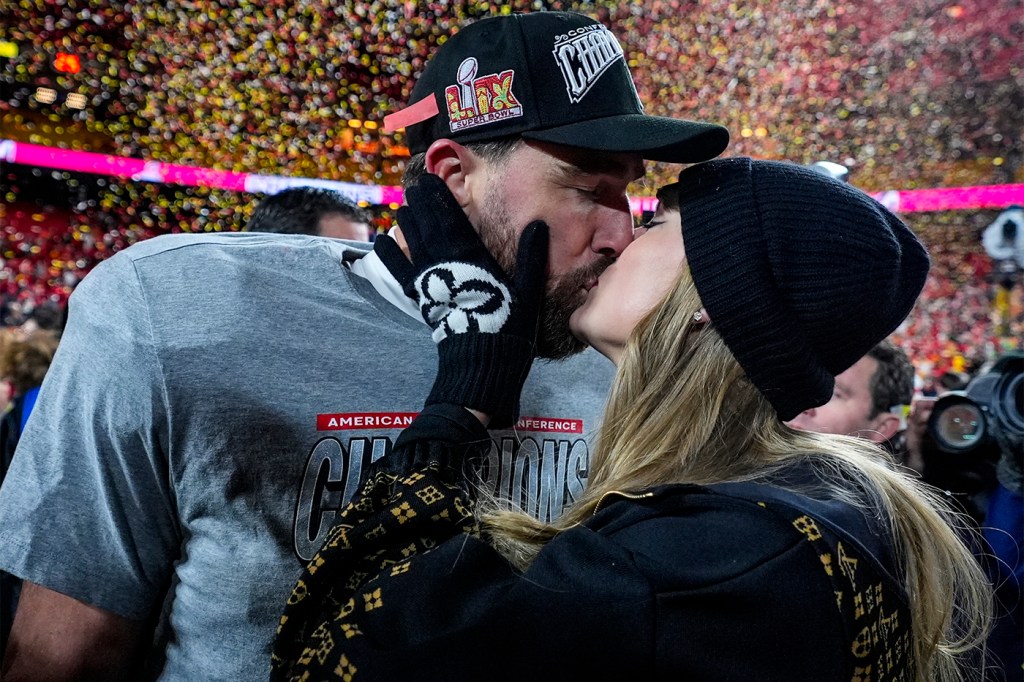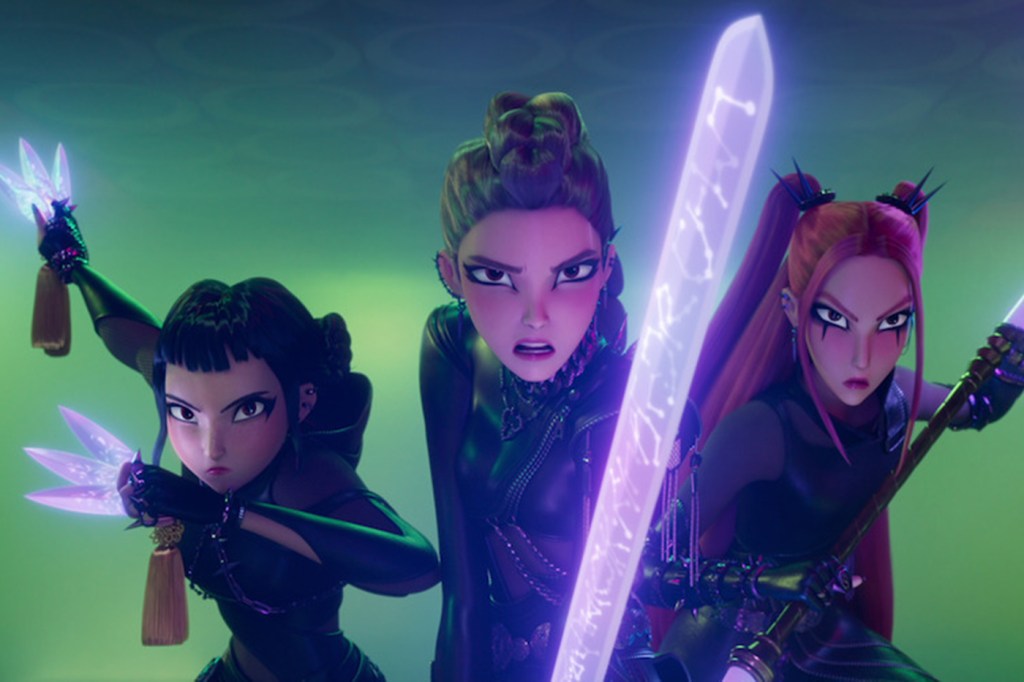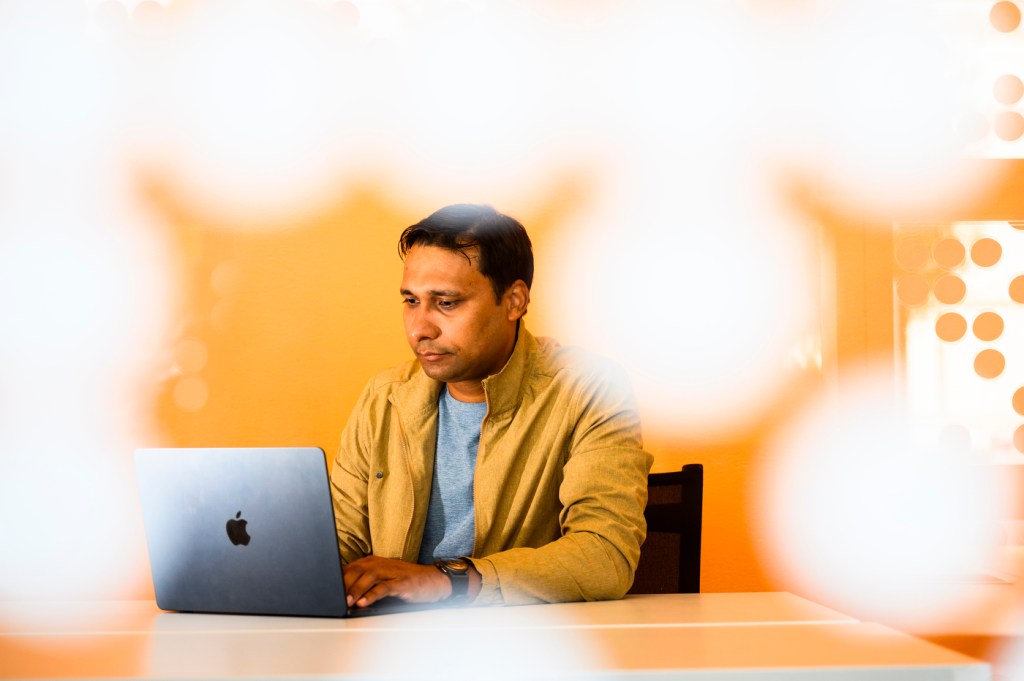Student climbing his way through American Ninja Warrior

Northeastern senior and champion rock climber Josh Levin zipped through the first round of American Ninja Warrior, the NBC show on which contestants navigate challenging multi-stage obstacle courses.
He made it through the Los Angeles qualifier in 4 minutes and 35 seconds, and Monday night’s episode will feature him competing in the Los Angeles finals for a chance to advance to the national finals in Las Vegas. Northeastern is hosting a viewing party with Levin, E’17, in the Visitor Center in West Village F beginning at 6:30 p.m. The episode begins at 8 p.m. EST, and the event is free to students, faculty, staff, and alumni.
Levin is co-founder of the Northeastern Climbing Team, and he says his extensive rock-climbing experience prepared him physically and mentally to compete on American Ninja Warrior. Here, he explains how he put his experiences to use in the qualifier round.
His greatest strengths
Levin says the problem-solving element of rock climbing is what differentiates the sport from others. It’s not simply about memorizing a routine—you have to adapt on the fly. “You can be the strongest person out there,” he notes, “but if you don’t know how to break down a problem into small pieces, you won’t get very far.” Strength, he says, is still very important; in particular, his upper body strength and grip strength from rock climbing served him well in competition.
Experience in competitions
Levin is no stranger to competing on a big stage, and he says some of his youth climbing competitions were way more intense than the first round of American Ninja Warrior. He won his first national championship at age 9 in speed climbing. Over the next decade of competing in the U.S. and more than 20 countries, he captured 18 more national championships as well as multiple U.S. speed climbing records and the bronze medal at the 2008 Youth World Championships.
You can be the strongest person out there, but if you don’t know how to break down a problem into small pieces, you won’t get very far.
— Josh Levin
Training regimen
Levin says that his training for American Ninja Warrior was very similar to that for rock climbing. But he also trained at American Ninja Warrior gyms across the country. From watching previous seasons of the show, he saw that contestants had to hang onto various parts of the course for extended periods of time, and so he focused on building up his forearm endurance. He also did a fair amount of parkour training, which involves quickly moving through an environment and navigating obstacles by running, jumping, and climbing. “Body awareness is obviously important when you’re flying through the air,” he says.
Trapeze, please
Speaking of body awareness, the second obstacle in the Los Angeles qualifier challenged contestants to get from a trapeze bar to a pendulum. Thankfully, Levin had flying trapeze experience from when he was 7 or 8 years old. “It was something I’d done in the past, and I remember thinking that hopefully I can instinctually remember it,” he says. “It came back enough to get through the obstacle, though it wasn’t pretty.”
American Ninja Warrior feels like being part of a huge community. It’s not cutthroat. We don’t want to see others fail. We want to see these obstacles conquered.
— Josh Levin
Co-op to the rescue
Levin is competing on season 8 of American Ninja Warrior. He’d hoped to compete last year on season 7, but he was sidelined with a torn labrum in his left shoulder. However, during his recovery he had what he called a “life-changing experience” as a co-op student at the NASA Jet Propulsion Laboratory, where he worked on a team designing the Mars 2020 rover. Engineering, Levin says, is all about problem solving—“It’s what I’ve loved to do my whole life”—and he sees parallels between facing engineering challenges and those he faces rock climbing and competing on American Ninja Warrior. In particular, he says, working on an engineering team was similar to the teamwork he experienced with other American Ninja Warrior competitors.
“American Ninja Warrior feels like being part of a huge community,” he says. “It’s not cutthroat. We don’t want to see others fail. We want to see these obstacles conquered.”
He adds: “On co-op, it was really great to have others I could talk to, bounce ideas off of, and get feedback to solve problems. That’s the same mentality we used on American Ninja Warrior.”





